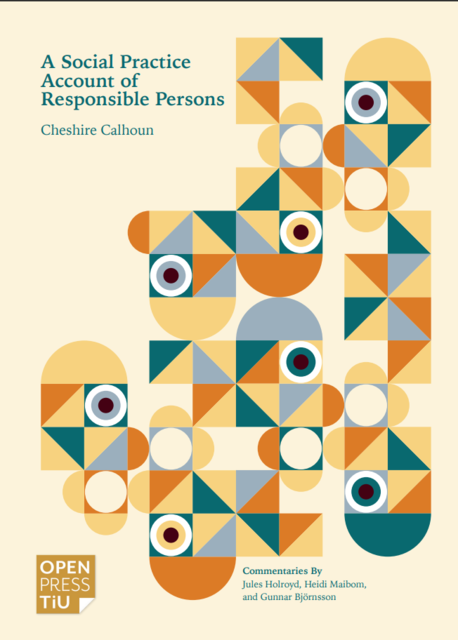A social practice account of responsible persons
Edited by Miguel Egler and Alfred Archer
“The Descartes Lectures” is a biennial event at Tilburg University that invites a distinguished philosopher to deliver a series of three lectures, each followed by commentaries from other experts in the field. In 2022, Tilburg University had the honor of hosting Cheshire Calhoun for a series of talks on the important philosophical question of what it means to be a responsible person. The commentators for the lectures were Gunnar Björnsson, Jules Holroyd, and Heidi Maibom. This book is a compilation of the material of Calhoun’s lectures, the commentaries by Björnsson, Holroyd, and Maibom, as well as Calhoun’s replies to their critiques.
Metadata
- isbn9789403771083
- publisherOpen Press Tilburg University
- publisher placeTilburg, The Netherlands
- rightsCreative Commons Attribution Non-Commercial-ShareAlike 4.0 International license
- rights holderMiguel Egler and Alfred Archer
- rights territoryThe Netherlands
- series titleThe Descartes Lectures
- doi
Table of Contents
We use cookies to analyze our traffic. Please decide if you are willing to accept cookies from our website. You can change this setting anytime in Privacy Settings.


